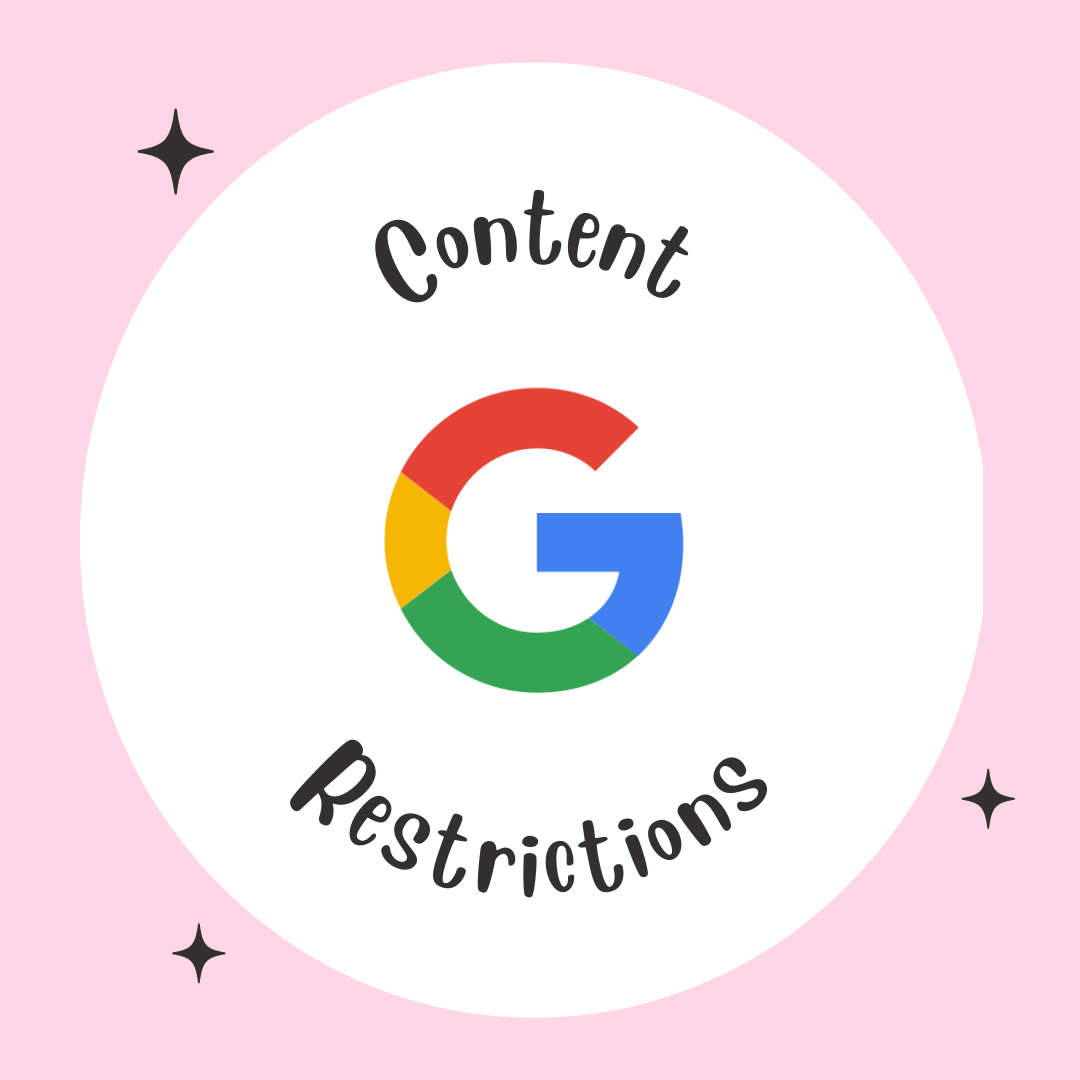
This post was most recently updated on September 5th, 2023
Google has strict policies that govern the types of content that can be monetized with ads. Content Restrictions are in place to ensure that ads are not served alongside content that violates Google’s guidelines or could be considered inappropriate or offensive. Publishers who want to monetize their content through any ads must adhere to these guidelines and ensure that their content meets Google’s standards.
In this article, we will explore Google’s Content Policy Guidelines for Publishers and discuss what publishers need to know to ensure their content meets Google’s requirements.
If you’ve been rejected from Google AdSense or its higher-paying counterpart, Ad Exchange, you may be wondering what you and your site did to earn the rejection. While an AdSense rejection can sometimes be inscrutable, there are some clear reasons why they might reject yoursite from their ad network.
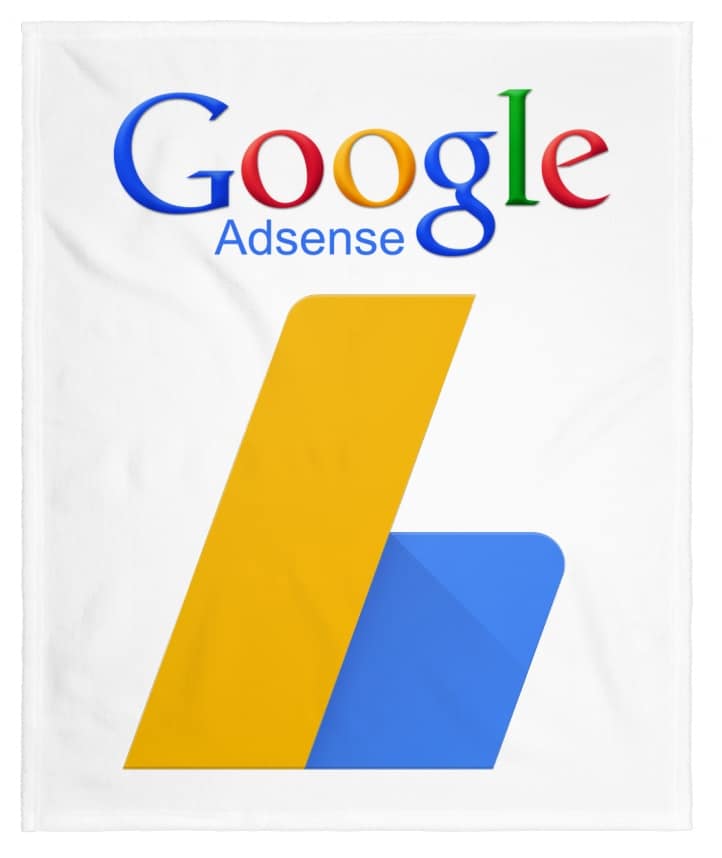
Google doesn’t want their ads to be displayed on websites that would diminish the value of their own brand. Look at any rejection of this principle in mind. Ask yourself, “Would my site make Google look bad?”
Think about it – most, if not all, companies would not risk their reputation by advertising their products and services next to unfavorable content. While not all scenarios would result to a ban, ad serving would be limited, which means the publisher would be earning less than if they were to comply with Google policies.
Related Read: https://www.monetizemore.com/blog/adsense-application-wasnt-approved/
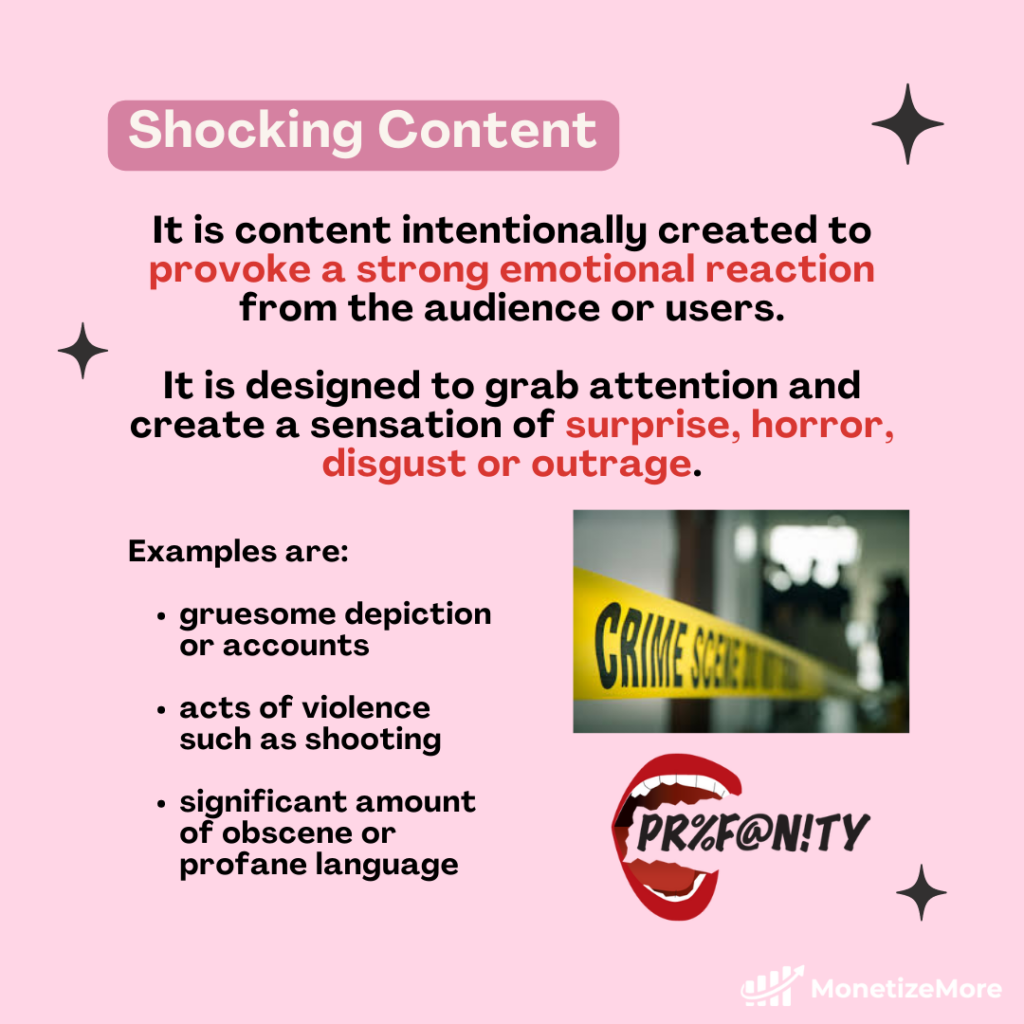
Shocking content is intentionally created content that is designed to provoke a strong emotional reaction from the audience. This type of content often includes violent or graphic imagery, hate speech, and other forms of offensive material. While some may argue that this type of content is an expression of free speech, it is important to remember that Google has strict policies in place to protect its users from harmful or offensive content.
Google groups this type of content into three main categories.
1- Gore – covers graphic or disgusting content
2- Violence – covers violent actions that cause injury or harm.
3- Profanity – covers profane or obscene language
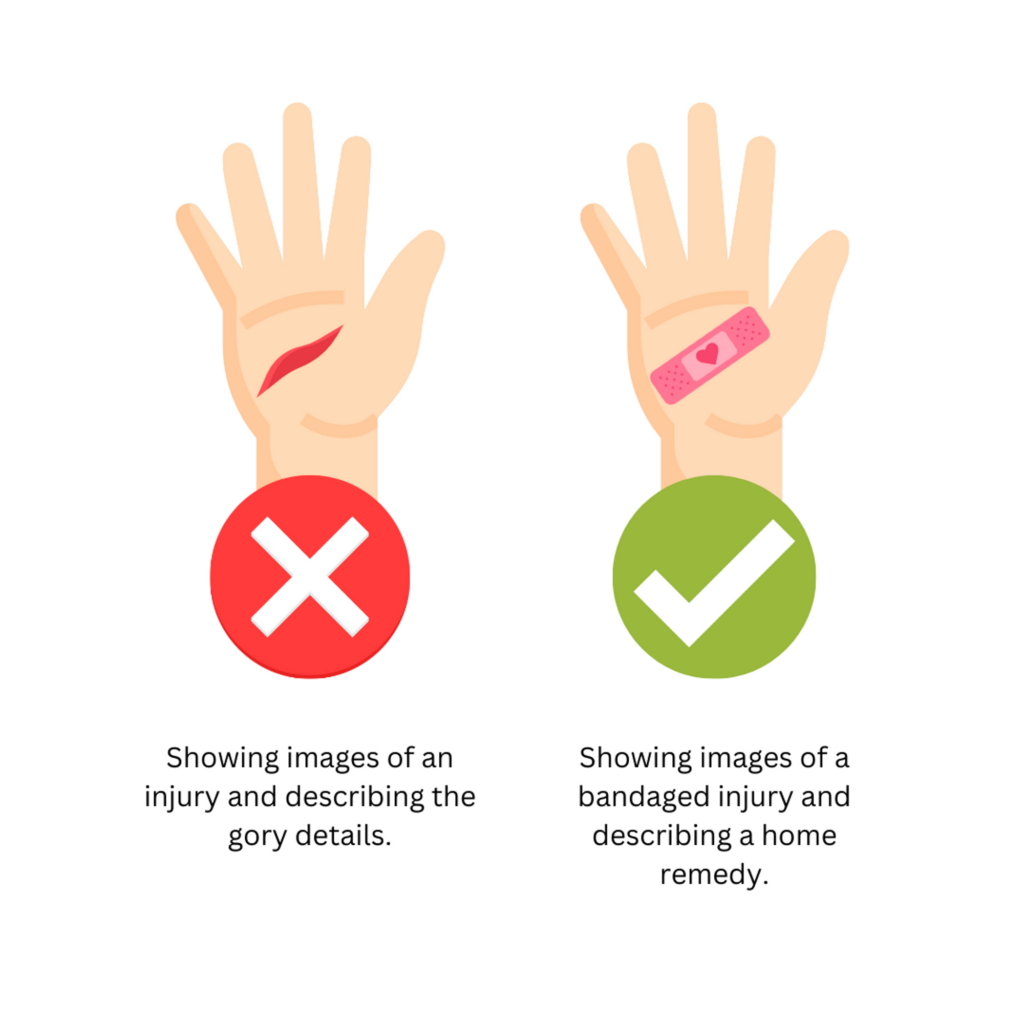
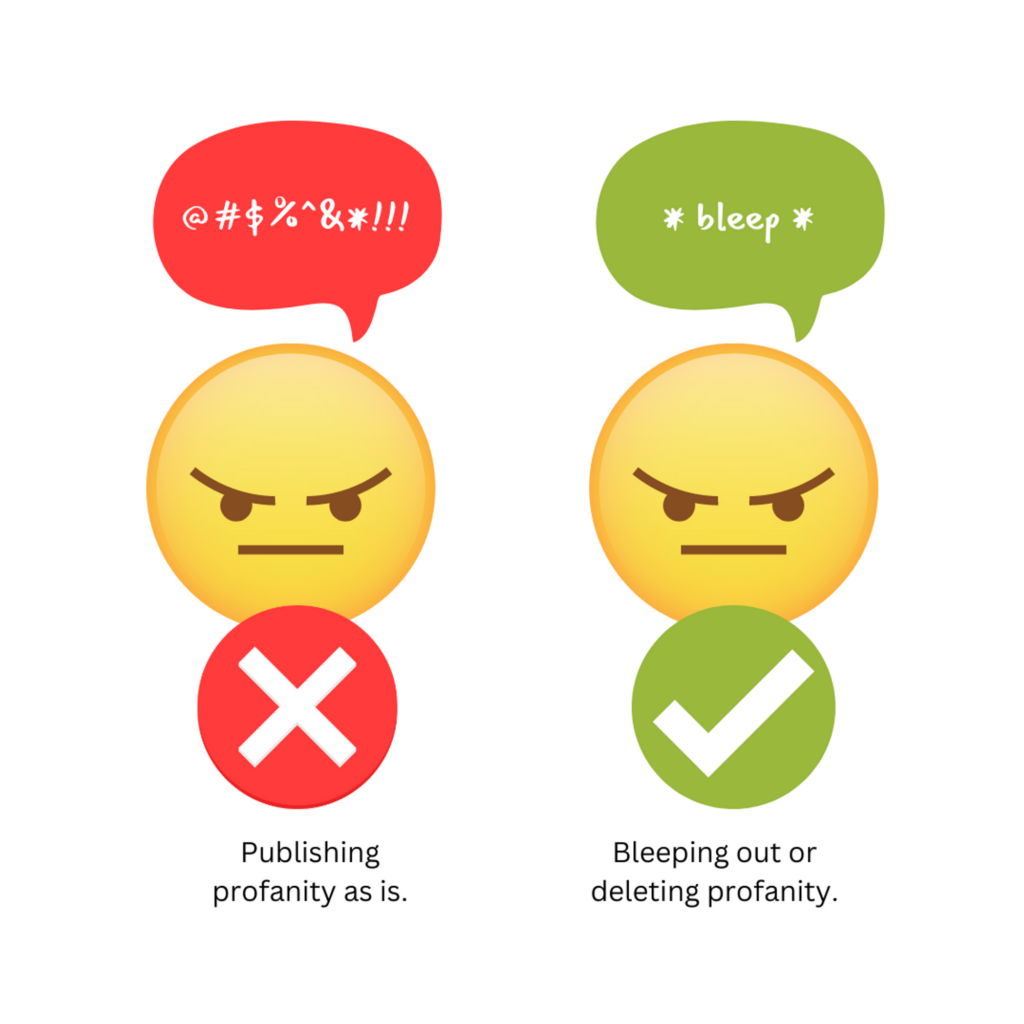
As of August 30, 2023, the policy on shocking content has been updated to include an exception for gameplay imagery. However, in the context of gameplay imagery, Google will still consider content that depicts the following acts to be a violation of the policy:
Violence against an individual or group on the basis of a characteristic that is associated with systemic discrimination or marginalization
If your website has been flagged for shocking content, there would be restricted ad demand, which basically means your ad revenue is being limited. Take action immediately by removing such content and other similar ones, or rewriting it. Once you’ve made the necessary changes, you may request an appeal to Google.
Google imposes this restriction to safeguard the interests of users, advertisers, and publishers. With this in place, users can confidently explore your website, advertisers can effectively advertise through Google, and as a publisher, you will continue to be part of the Google network, generating revenue from these advertisers.
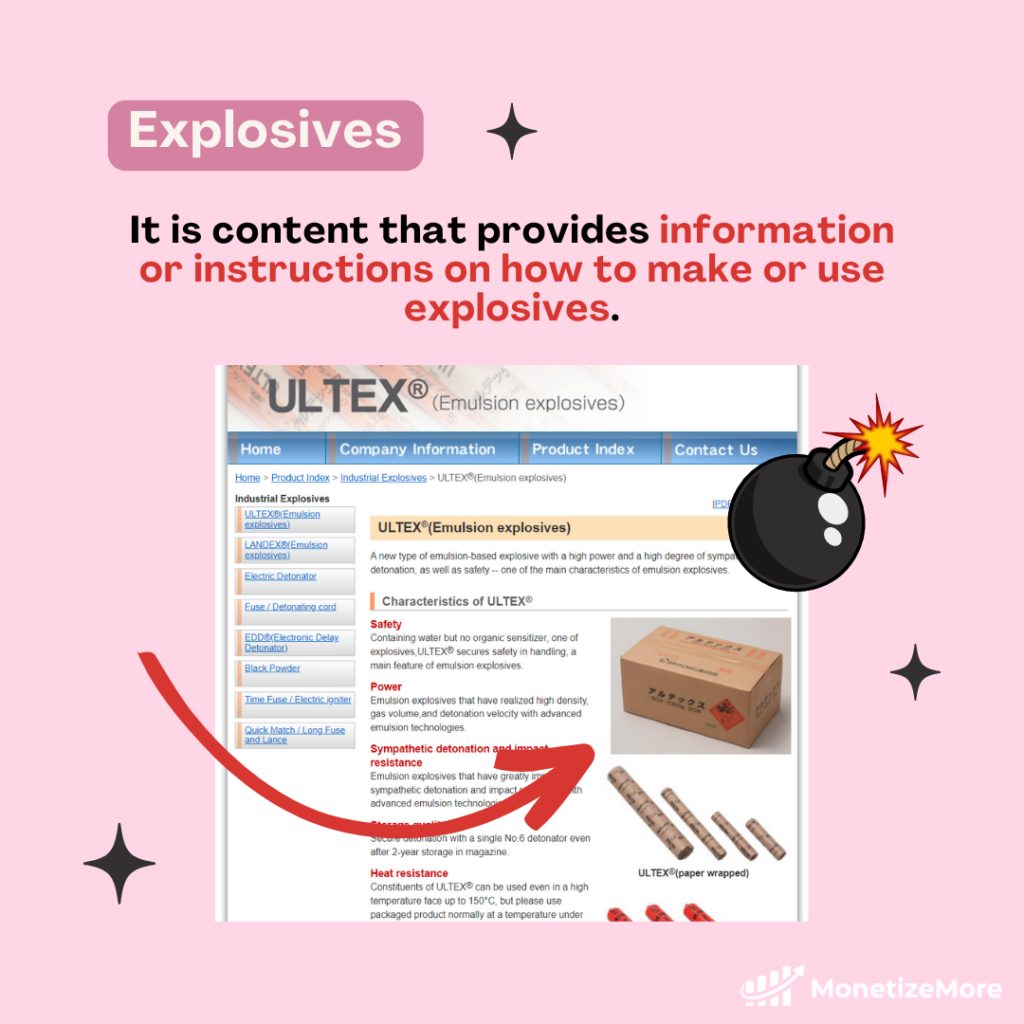
Explosives content promotes information or instructions on how to make or use explosives. This type of content can be extremely dangerous and pose a significant risk to public safety. For this reason, Google has strict policies in place to prevent the dissemination of explosives content on its platform.
Google’s policies on explosives prohibit any content that provides instructions on making explosives or incendiary devices. This includes content that promotes the use of explosives or incendiary devices for illegal or dangerous purposes.
If Google determines that a publisher has violated their policies on explosives content, they may take a range of actions to address the issue. This can include removing the offending content from their platform and issuing a warning to the publisher. In more serious cases, Google may also suspend or terminate the publisher’s Google Ads account.
Publishers who wish to create content related to explosives must ensure that their content complies with Google’s policies. This may include providing information on explosives that is intended for educational or informational purposes only, without encouraging or promoting the use of explosives for illegal or dangerous purposes.
Publishers must be aware of Google’s policies on explosives content and ensure that their content complies with these policies to avoid potential consequences.
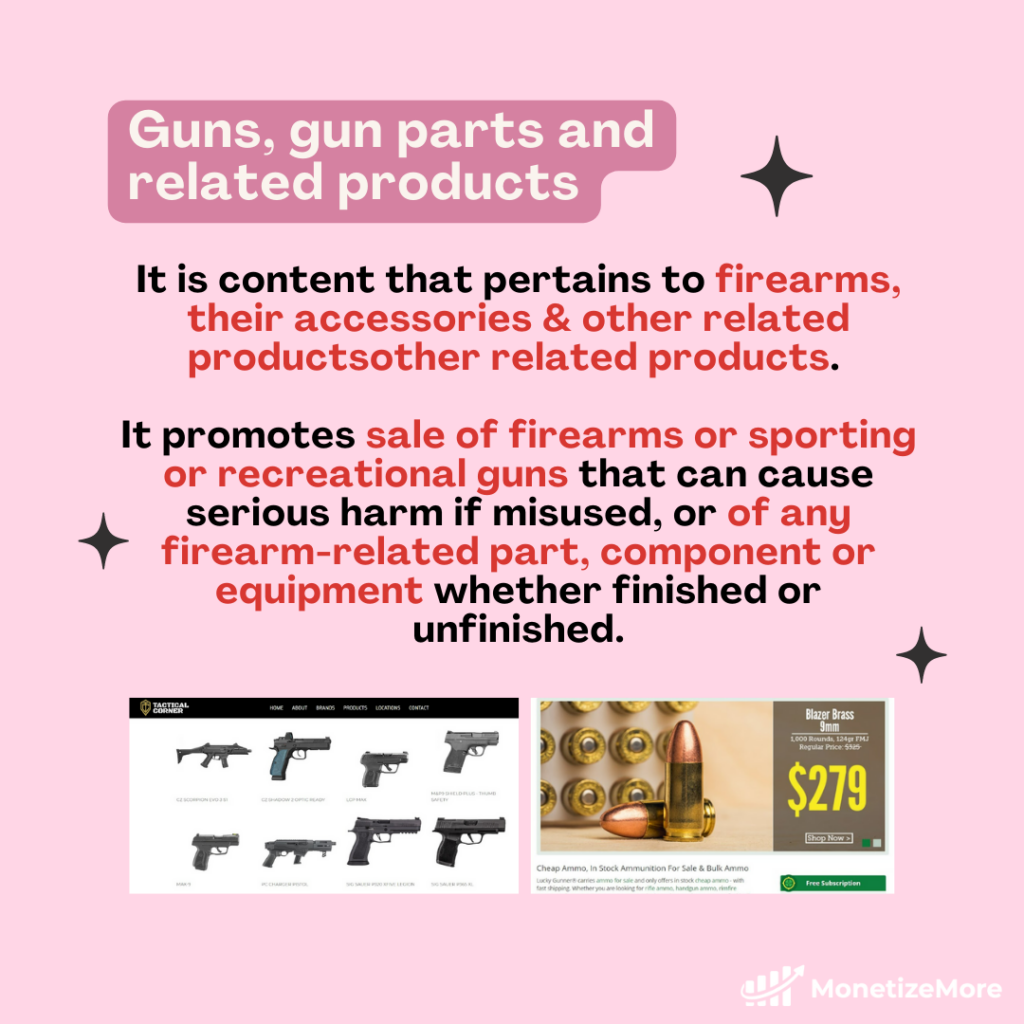
Google prohibits the promotion of firearms and related products on its platform. This includes content that promotes the sale, use, or trade of firearms, ammunition, and firearm accessories.
Publishers who violate Google’s policies on guns, gun parts, and related products may face consequences such as demonetization, suspension, or even termination of their AdSense or AdMob account. In addition, Google may also take legal action against publishers who violate their policies.
However, there are some exceptions to Google’s policies on guns, gun parts, and related products. For example, publishers may be allowed to promote content related to firearms if it is intended for educational or informational purposes only, such as articles about the history of firearms or how to safely operate them.
It is important for publishers to be aware of Google’s policies on guns, gun parts, and related products and to ensure that their content complies with these policies. By doing so, publishers can avoid potential consequences and maintain a positive relationship with Google.
Google has a strict policy against the promotion of dangerous or derogatory content, which includes content that promotes harassment, adult content, and hate speech that targets and discriminates against individuals based on their race, gender, religion, sexual orientation, or other personal characteristics. Publishers who violate this policy may face penalties from Google.
The penalties for promoting dangerous or derogatory content can range from a warning to a complete suspension of ad serving on the publisher’s website. Google may also choose to demonetize the publisher’s content or remove them from its search results.
In addition to the potential penalties from Google, publishers who promote dangerous or derogatory content may face backlash from their audience, leading to a loss of reputation and potential revenue. Advertisers may also choose to blacklist publishers who promote this type of content, leading to a significant loss of revenue for the publisher.
To avoid these penalties, publishers should carefully review their content and ensure that it complies with Google’s policies, while also taking prompt action to remove any offending content.
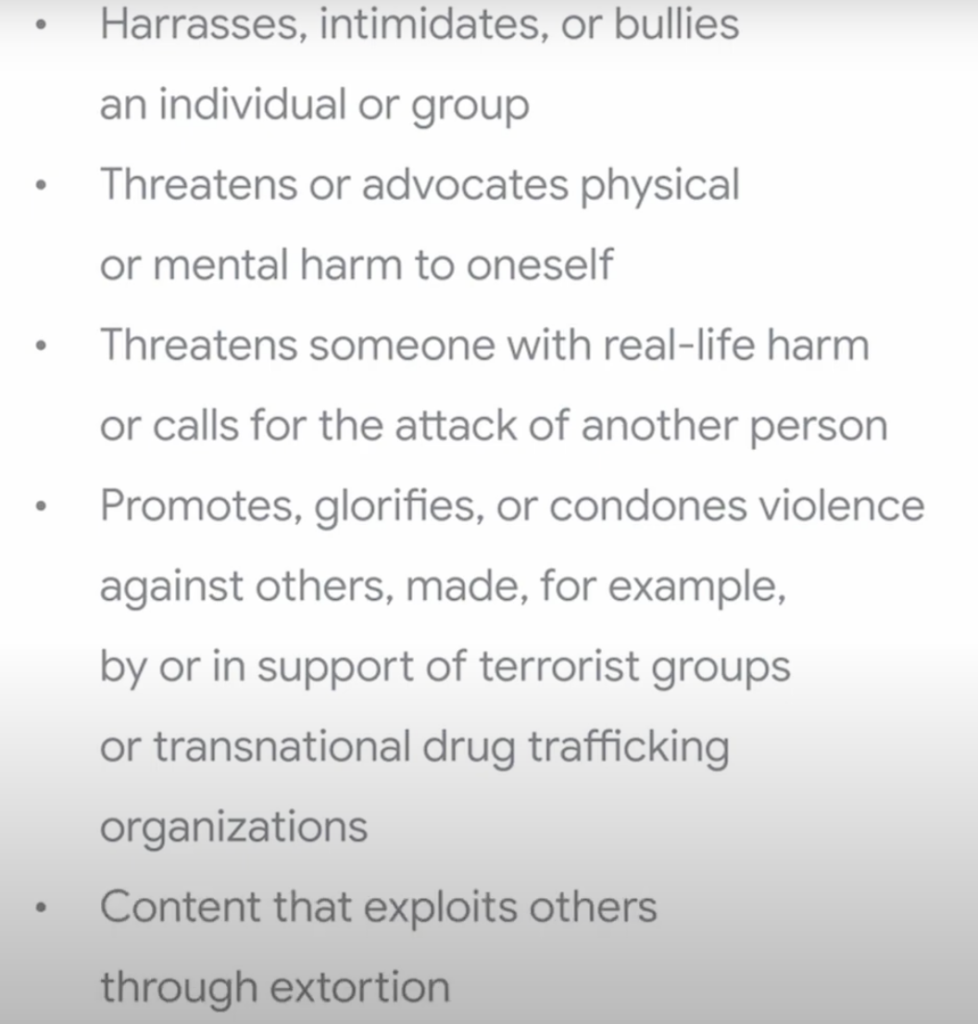
Google has a zero-tolerance policy when it comes to content that promotes animal cruelty. Publishers who promote this type of content on their pages risk being banned by Google for good.
Animal cruelty can take many forms, including content that promotes animal violence, the use of animals for experimentation or testing, or the hunting of endangered species. This type of content is not only cruel and unethical but also goes against Google’s policies.
To fix the policy violation of promoting animal cruelty, publishers should immediately remove any offending content from their pages. They should also review their content policies and ensure that they prohibit any form of animal cruelty. In addition, publishers should make it easy for users to report any content that violates these policies and take prompt action to remove any offending content.
In conclusion, publishers should be aware that promoting animal cruelty is a serious policy violation that can result in being banned by Google for good. The best way to fix this violation is to immediately remove any offending content and review content policies to ensure they prohibit any form of animal cruelty. By doing so, publishers can avoid serious consequences and maintain their reputation as responsible and ethical publishers.

When it comes to illegal content, the best way to fix the issue is through a review and removal process. Publishers should keep up with policies in place that allow them to quickly review and remove illegal content to ensure that their platform is safe for all users. This is not only important for the safety of users, but also to avoid being flagged by Google for hosting illegal content.
Platforms should have clear policies that prohibit illegal content and should make it easy for users to report any content that violates these policies. Once illegal content is reported, the platform should quickly review the content and take appropriate action to remove it if necessary. This process should be done consistently to ensure that illegal content is removed promptly and that the platform remains safe for all users.
By implementing a review and remove process for illegal content, publishers can demonstrate their commitment to providing a safe and secure environment for their users. In addition, they can avoid being penalized by Google and other search engines for hosting illegal content.
Here’s free advanced video training on fixing all policy violations.
In conclusion, publishers should be aware that promoting illegal content is a serious policy violation that can result in being banned by Google for good.
You can stop worrying about policy violations once you’re partnered with the right adtech company that will guide you through getting back your AdSense account. We’ve improved our clients’ ad revenues by 50-350%.

With over ten years at the forefront of programmatic advertising, Aleesha Jacob is a renowned Ad-Tech expert, blending innovative strategies with cutting-edge technology. Her insights have reshaped programmatic advertising, leading to groundbreaking campaigns and 10X ROI increases for publishers and global brands. She believes in setting new standards in dynamic ad targeting and optimization.
10X your ad revenue with our award-winning solutions.